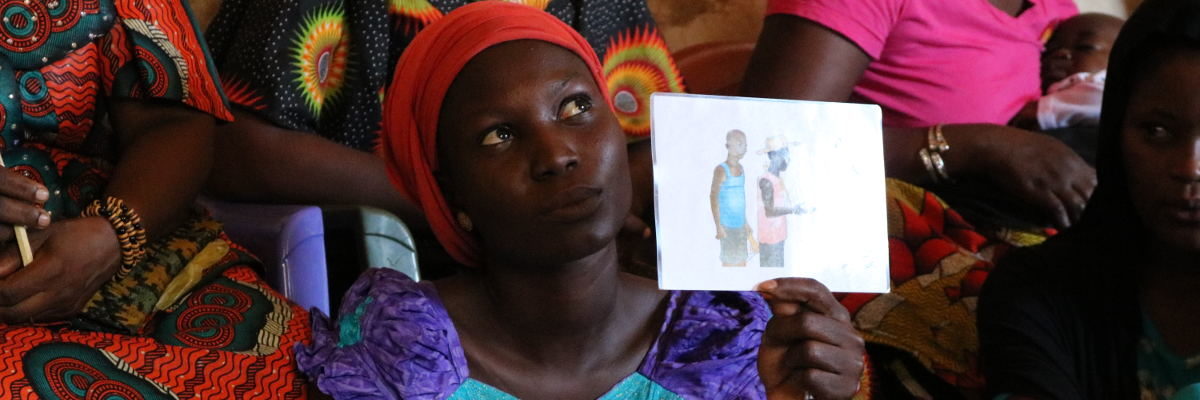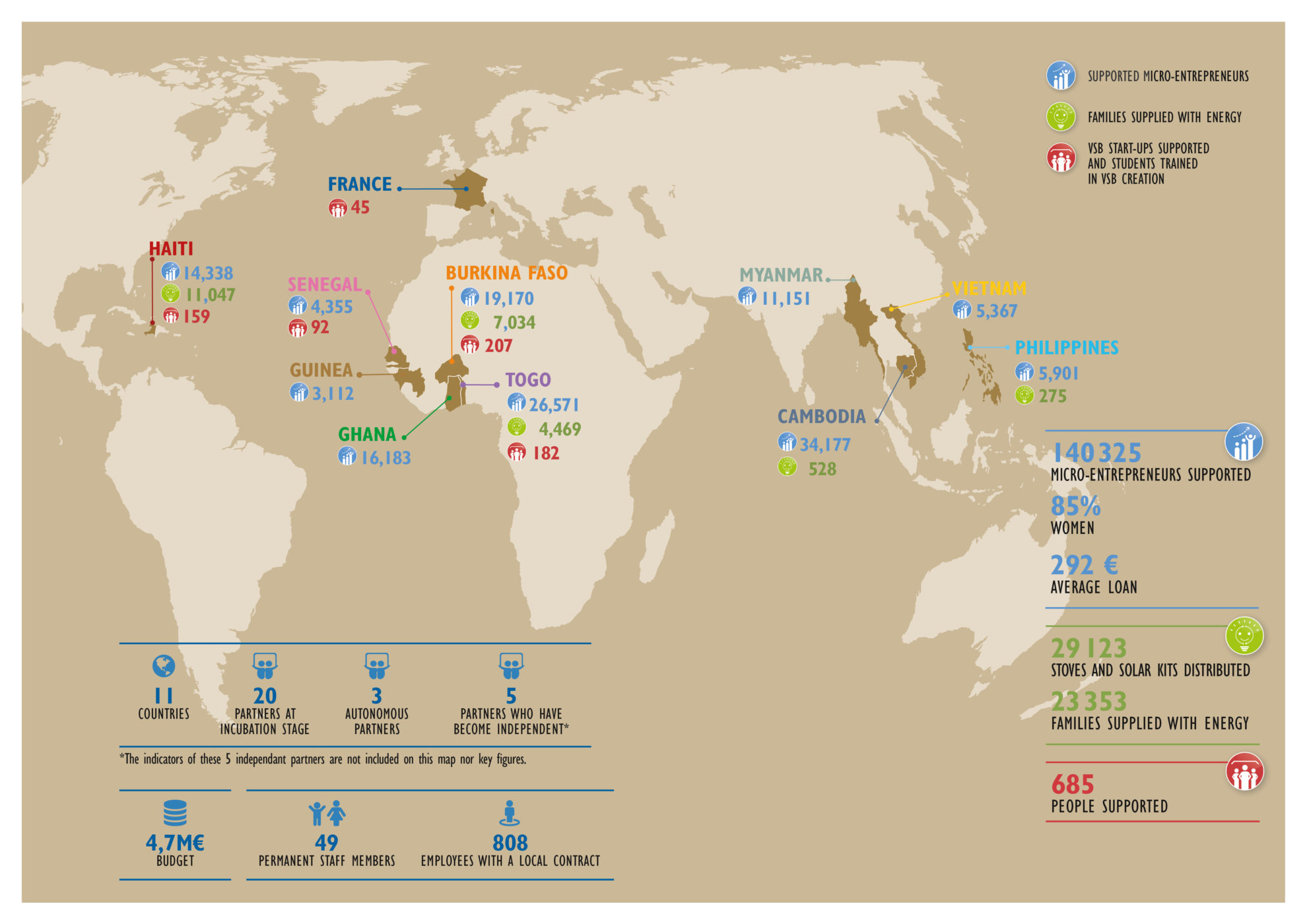The essentials of our action in 2018
For the past 20 years, we have been supporting the socio-economic integration of thousands of entrepreneurs around the world.
We work in three domains: social microfinance for traders, street food vendors and farmers; support for very small businesses and for the occupational integration of people who might create employment or set up a formal business; access to energy for everyone.
In 2018 we initiated a 4th area of activity, agricultural channels, to support small farmers, by helping them to adapt to climate change, to live off their land and to ensure food security for everyone.
To fulfil our mission, we create and nurture local organisations until they become self-sufficient and sustainable. We help them to define their vision, their mission, their social objectives and their operating principles, to put in place tools and procedures for training, management and reporting, to establish their management and their legal existence, to measure their social performance and to find the necessary finance.
In 2008, we set up 4 programmes and celebrated the launch of 2 others.
This independence at all levels is only possible through your support! Thank you for giving us the means to support these men and women who are shaping their own destinies!
Your generosity in 2018
283 158 € collected from the general public
1,86 M€ collected from companies and corporate foundations
2,56 M€ collected from public and international organisations


